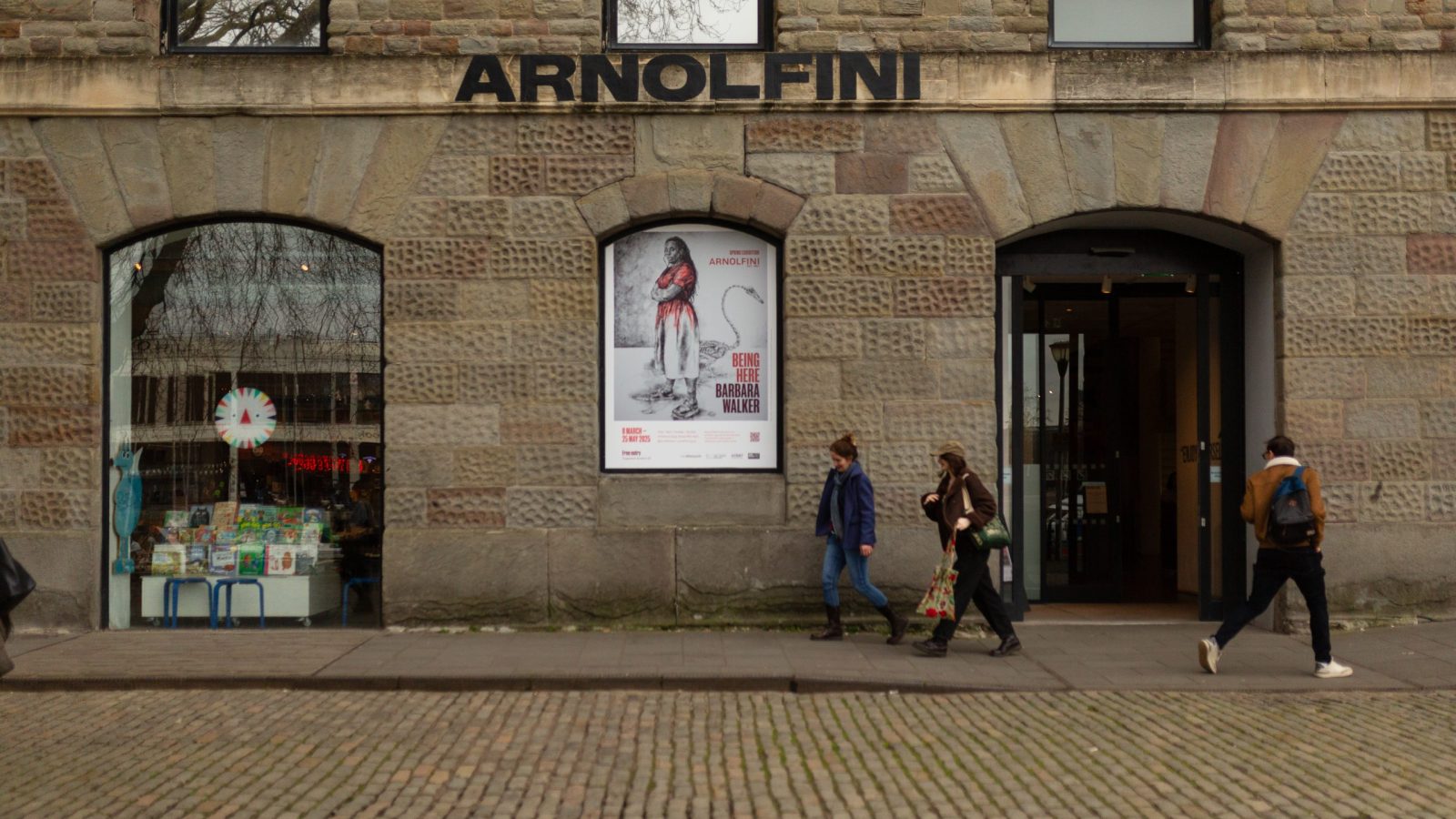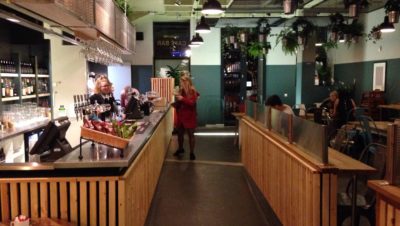Art / Reviews
Review: Barbara Walker, Being Here – ‘a spellbinding ode to one of the most profound artists of her generation’
Barbara Walker’s exhibition Being Here, made up of more than 60 works from various series, is on tour at the Arnolfini this spring, following its popular success at The Whitworth in Manchester.
It covers a huge scope of time, drawing sources from classical myth, reworkings of Georgian paintings, the Windrush Scandal and more.
As it navigates back and forth through these periods, Walker’s crucial message is that no-one be left behind.
is needed now More than ever
As the Arnolfini observes, “for over 25 years, Walker has been making intensely observed and empathetic figurative work that creates space for Black presence, power and belonging”.
The focus of the exhibition is celebrating Black people. This is signalled immediately through the first work in the exhibition, ironically titled End of the Affair.
Walker’s life-sized self-portrait is fierce, with her closed body language and severe eyes which challenge the viewer’s preconceived notions of what is to come.
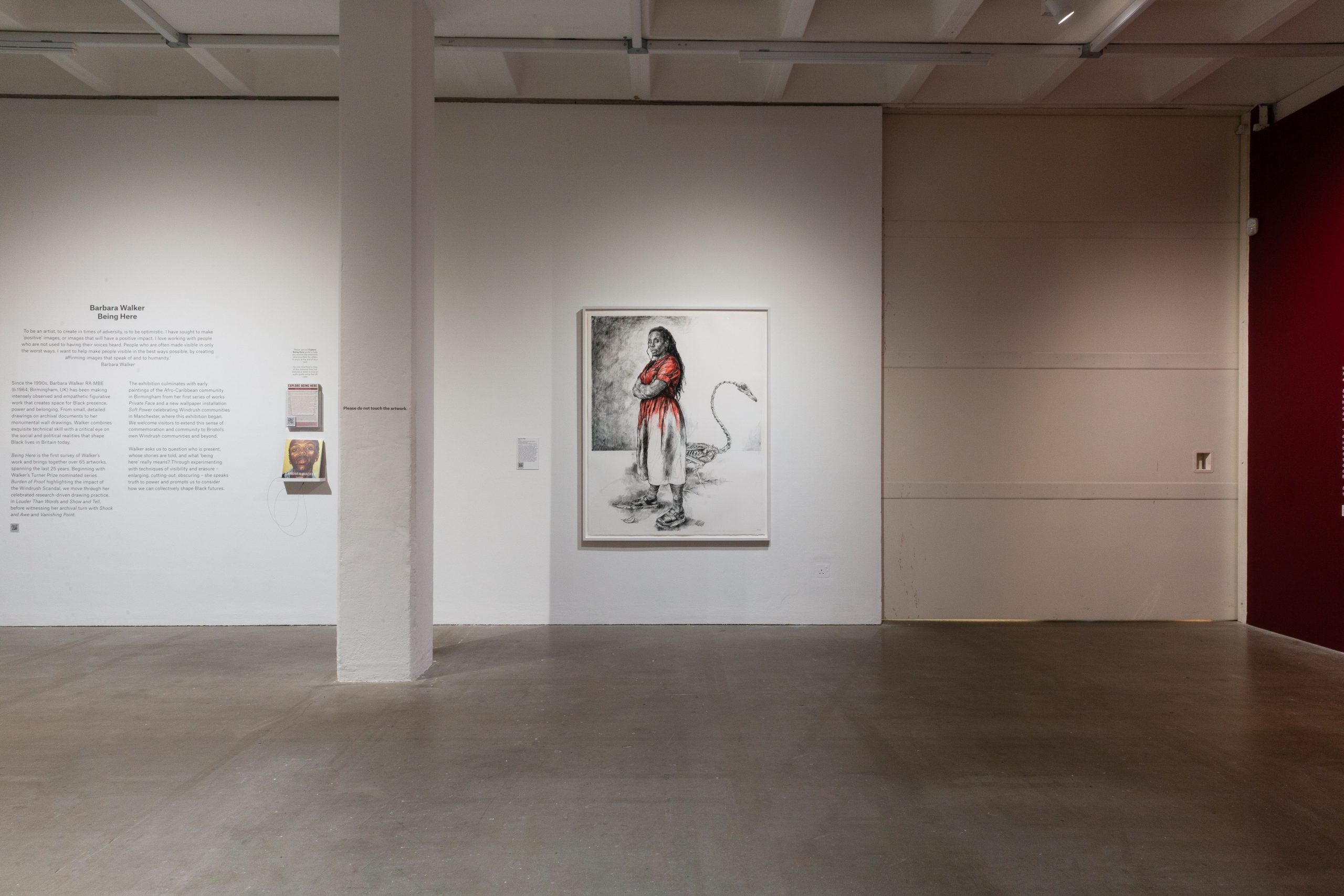
Being Here is made up of more than 60 works from various series
I was taken aback by its sheer size, a scale which sustains itself throughout each of her collections.
Size is so important in her work as it dictates that no detail of her work be overlooked.
You are confronted with the art one body to another.
Burden of Proof, Walker’s Turner Prize nominated series, is the first presented collection.
It is made up of ten mixed media pieces which highlight Black people affected by the Windrush Scandal.
Documents they were forced to use as ‘burden of proof’ are overlayed with Walker’s sketches of their faces.
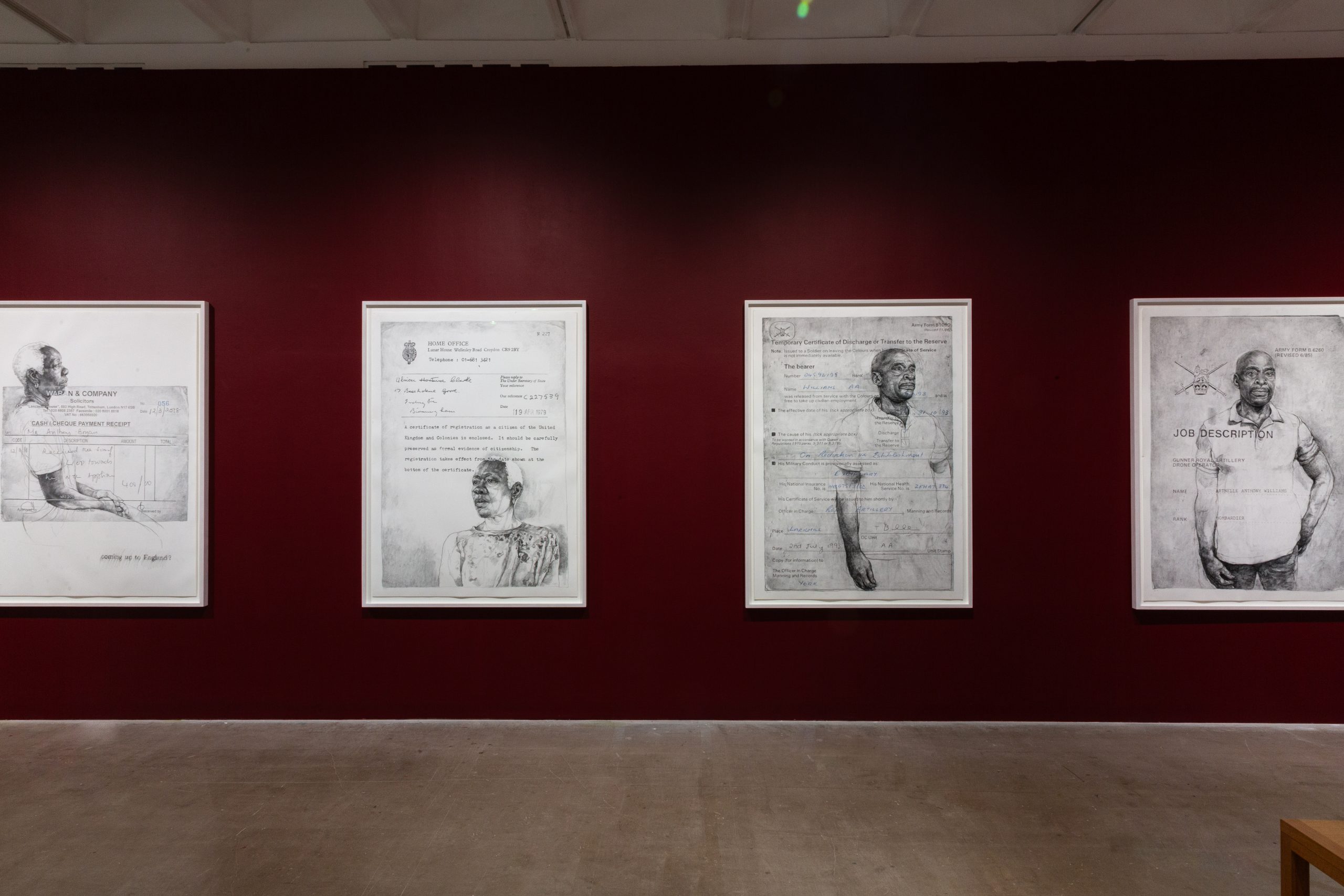
Burden of Proof humanises some of the people victimised during the Windrush Scandal
The stark contrast between her softly rendered sketches and the official, dehumanising print of each document is very effective, as it reflects the lack of humanity these people received.
Each face is documented twice from alternative angles and this transition of perspective helps to de-centre any final gaze.
Some of the names on the documents are handwritten in contrast to the printed letters, requiring some scrutiny to decipher.
Moreover, Walker challenges to us to take the time to decipher the real people behind this documentation.
Next, we move back in time to her 2006 to 2009 series Show and Tell.
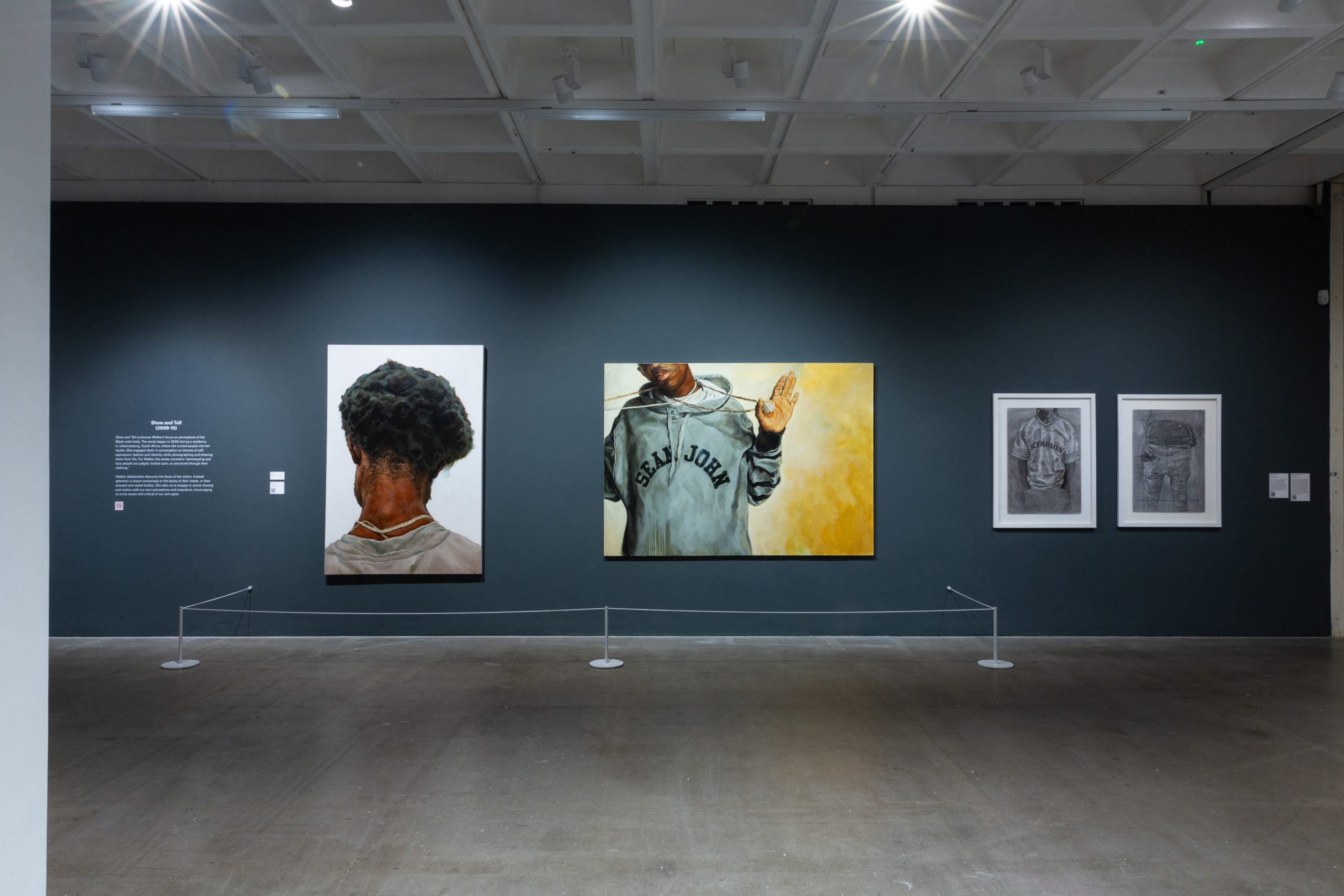
Show and Tell invites audiences to complete the picture
This presents fragmented sections of portraits of young Black people, inviting us to complete the picture, and investigate the stereotypes that we indulge in along the way.
Once again, her work finds ways of generating a creative and critical engagement with its audience.
Less effective are her landscape sketches, included in the Louder than Words series which fail to emotionally engage in the way that her sketches of the body do.
Upstairs, I was pleasantly refreshed by the move to her historical series, Shock and Awe.
These works are ‘reinterpretations’ of archival photographs Walker uncovered from the National Archives.
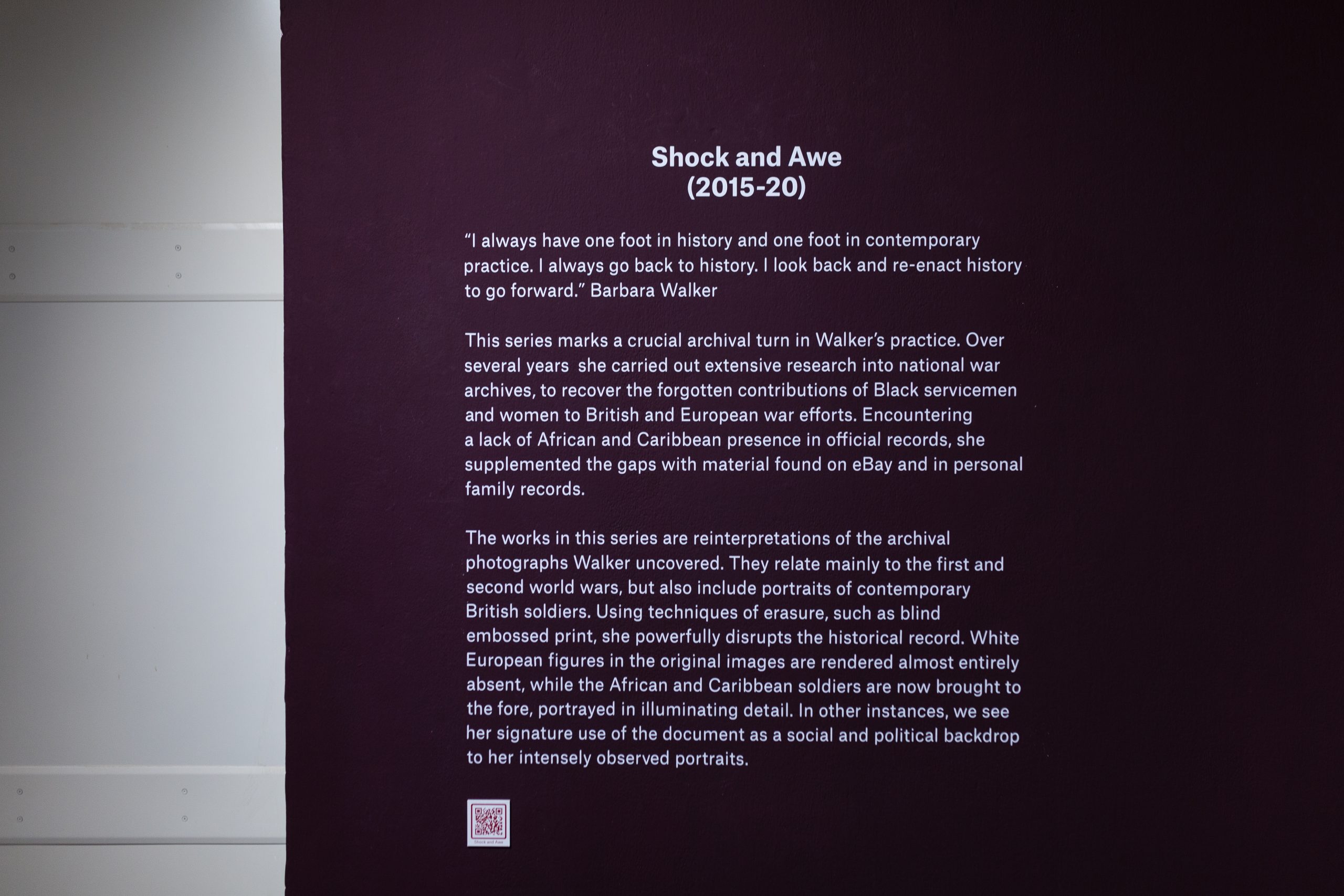
Shock and Awe pays respect to the efforts of African and Caribbean servicemen in British and European war efforts from WW1 onwards
Some use an overlaying technique again, with soldiers faces sketched over war enlistment posters from World War One and Two.
However, the most interesting frames used blind embossed print to render the outlines of white soldiers faces and bodies alongside full sketches of Black characters.
This highlighted the unrecognised work of Black people in British and European work efforts. I found the pieces hugely evocative due to the immense space Walker delegates to absence.
In other pieces this absence is more explicit, with noticeable brush strokes covering a white soldier’s face. Overall, I admired the sense of experimentation, which conveyed how is no one solution to the rewriting of history.
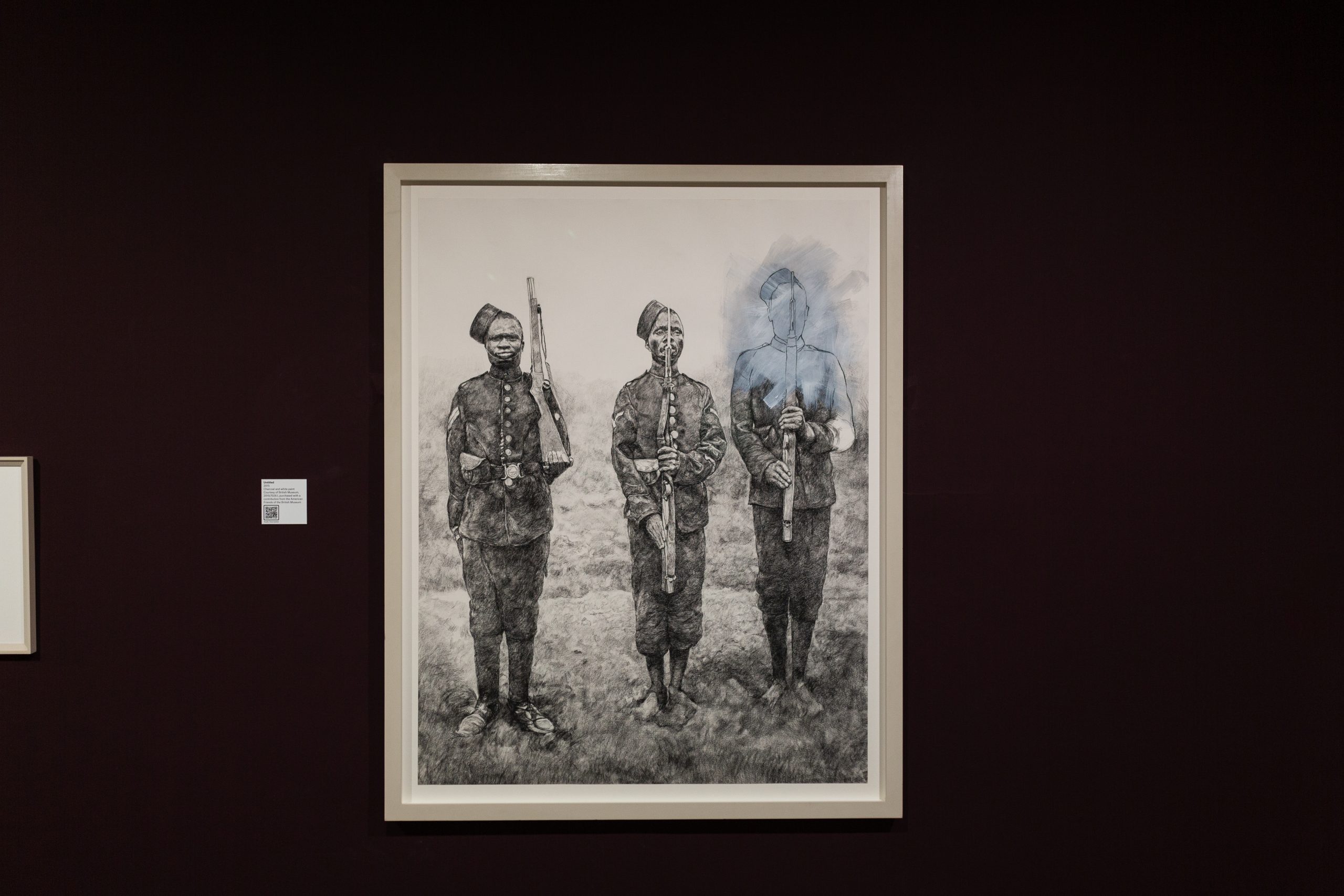
Shock and Awe highlights the power of absence
Moving further into the past, Vanishing Point, an ongoing work she started in 2018, reinterprets Georgian period paintings with black unnamed figures in the background.
The complex politics of negotiating white and black bodies is built upon, as in Vanishing Point 32 a Black Servants body is invaded by the outline of a white body in blind embossed print.
I would suggest it conveys how entrenched societal neglect of Black history is.
Crucially, in Walker’s Marking the Moment sketches, Georgian portraits are drawn in full detail and then overlaid with Mylar to create a blurring effect, except for a portion of the frame where the Black servant is left uncovered.
For me, this initiated a powerful reflection on Walker’s painstaking craft, as I acknowledged the time it would take to sketch these portraits for them to be partially covered.
The final collection in the exhibition is her series Private Face. We move firmly back to the present, with paintings that were made between 1998 and 2005 which capture snapshots of modern Black Birmingham.
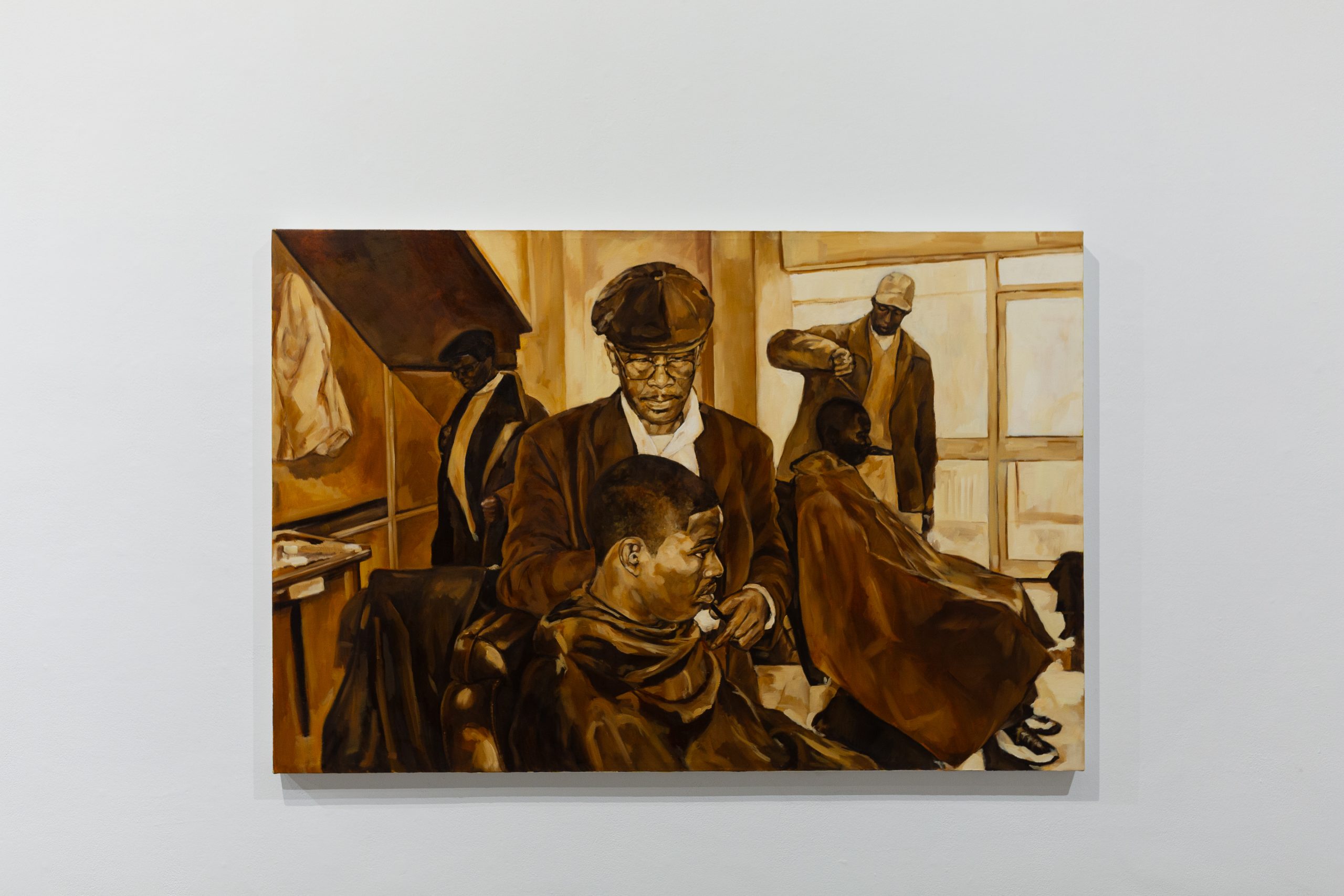
The paintings in Private Face capture snapshots of modern Birmingham – from a market stall to a barbershop
The vividness of the colour the series employs was a welcome surprise, compared to Walker’s more recent black and white mixed media pieces.
Once again, faces are figured from many different angles, though we almost never encounter them face on.
Walker captures the ritual of Black life in Birmingham through this symbolic peek in the door.
I was entranced by the warmth of these paintings, and wished that some of her more recent, historically charged work was imbued with its strong sense of colour.
Private Face was the perfect end point to the exhibition, with its ode to Walker’s own history as an artist.
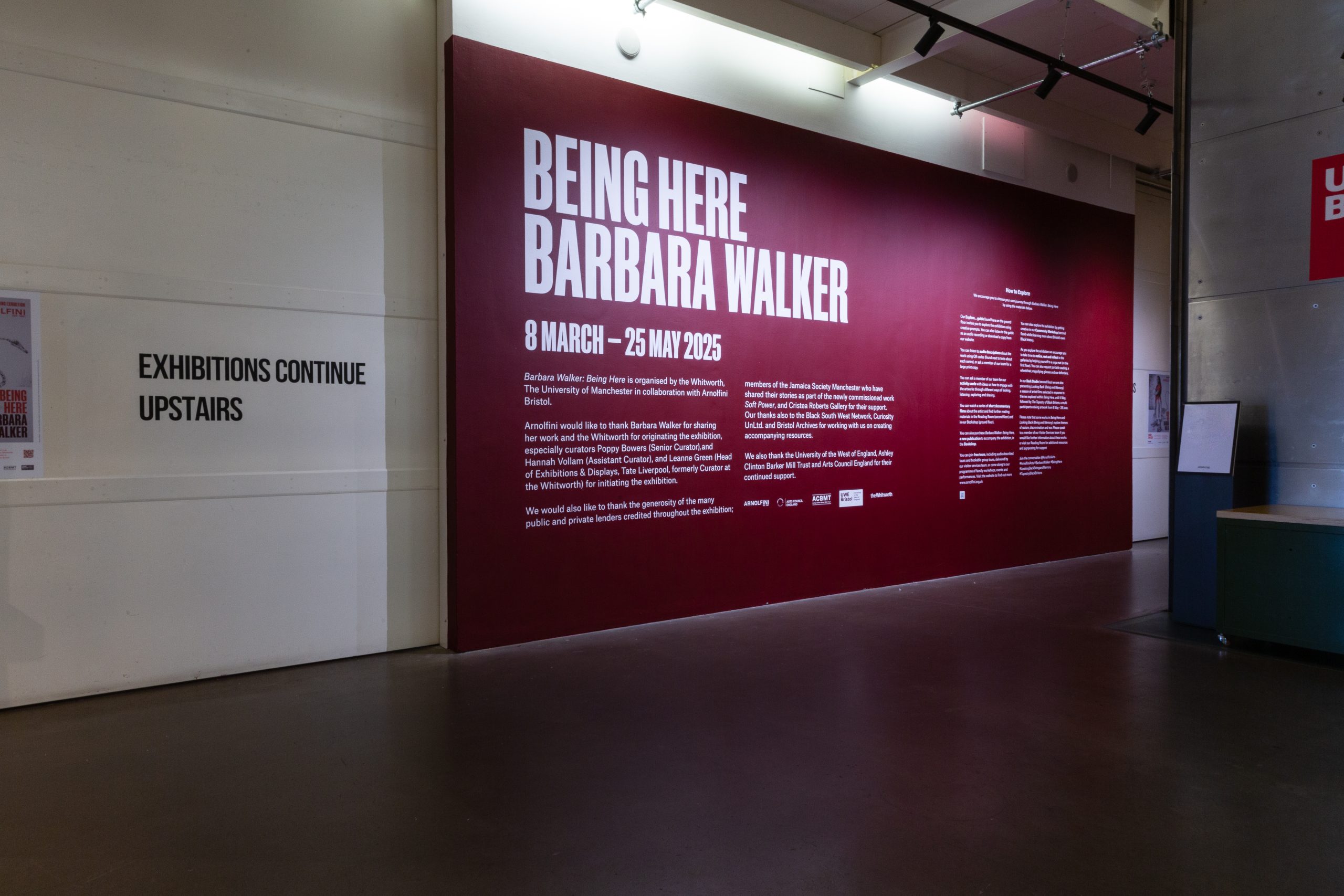
Being Here will be at the Arnolfini until May 25
Overall, Being Here is a spellbinding ode to Barbara Walker’s reputation as one of the most profound artists of her generation.
As I moved through the exhibit, the different faces built upon each other, impressing themselves in my mind and demanding recognition.
Although I would stress the exhibition’s scope is almost exhausting, the outcome of viewing it is far from unrewarding.
I encourage all to visit this exhibition while they can: it is due to close on May 25.
For more information about Being Here, visit www.arnolfini.org.uk/whatson/barbarawalker/
All photos: Lisa Whiting Photography for Arnolfini
Read next:
- Pub of the Week: Arnolfini Cafe Bar
- Arnolfini announces ambitious exhibition programme for 2025
- Arnolfini ‘deeply regrets distress caused’ for cancelling Palestine events
 Our newsletters emailed directly to you
Our newsletters emailed directly to you